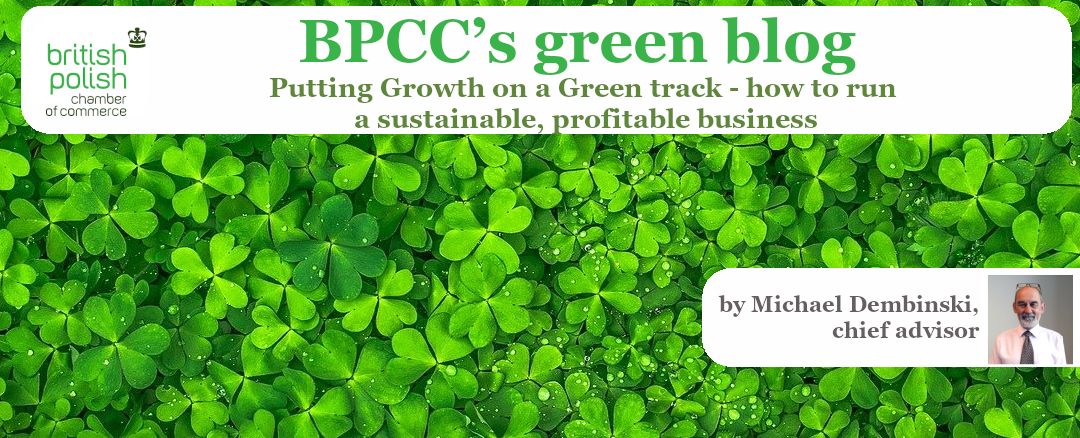On New Year’s Day 2023, the temperature in Warsaw reached 18.9C. Not only was this a record for any day in January; this year’s high beating the previous one from 12 January 2003 by over three degrees centigrade. The south of France experienced 34 consecutive days without rain this winter; indeed the whole south-west of Europe is still suffering from a serious drought which will inevitably affect the whole continent’s food supply as spring turns into summer.
Yet less than 18 months earlier, the July floods of 2021 killed 196 Germans, also taking the lives of 43 Belgians. The loss of life and physical devastation was on a scale hard to imagine in prosperous countries today – but it happened. Governments need to mitigate and adapt – investing in water-retention and drainage schemes on a massive scale.
It is evident to all but the most hardened climate-change denier (of whom there seem to be an ever-growing number) that Europe is condemned to extreme weather events of increasing intensity and frequency. These will affect the continent’s food security; and while not leading to EU-wide famine, such events will inevitably push food-price inflation higher.
Climate is a complex, interlinked global system. An El Niño event in the Pacific, for example, can result in warmer and drier conditions in parts of Europe, particularly in winter and early spring. With a 62% probability of an El Niño event taking place this summer, it looks like another dry winter is heading Europe’s way next year – and food prices will continue to rise.
Whether we as a species manage to limit the temperature rise due to our burning of fossil fuels to 1.5C, or whether the rise escapes from beyond our control, is entirely up to us, the governments we vote for, and the businesses we buy from. The responsibility for our continent – and indeed our entire planet – lies with us all – eight billion human beings.
Yet the biggest emitters of greenhouse gases live in the developed world. Those of us who choose to fly off regularly on holidays, buy ever-bigger cars for short urban drives, engage in unthinking consumerism, purchasing more and more unnecessary ‘stuff’ in the hope it makes us feel better, have far more on their conscience than sub-Saharan Africans whose annual energy consumption per head is similar to that of an American household refrigerator.
Saturday 22 April was Earth Day, marked by demonstrations in London aimed at raising awareness of the danger our planet is in. Whether this form of direct action has any positive effect on those who believe that climate change is a scam or a conspiracy is doubtful. Changing minds of a group within society that’s prone to espouse socially dangerous beliefs will be especially difficult, nevertheless it will be a task that governments and business need to tackle as well as activists.
Action needed to slow down and then reverse the course that humanity is taking is coming from governments and business. Governments are using laws and regulations to drive green transformation. The US Inflation Reduction Act (IRA) is actually a massive publicly-funded drive to transform US industrial and energy sectors through the use of renewable energy – sourcing as much of what’s needed at home. Putin’s full-scale invasion of Ukraine finally pushed the EU to break with fossil fuels from Russia, accelerating the drive towards green energy.
Meanwhile, the ESG agenda has spurred business into action. With banks competing with one another to prove their green credentials, borrowing money for high-emission activities is becoming prohibitively expensive. Employees and shareholders alike are shunning those firms that are reckless with their carbon footprint. And the EU’s Taxonomy sets out what is really a move in the right direction and what’s merely greenwashing.
Governments and (in particular) large corporates with reputations at stake are paying closer attention to the dangers of runaway climate change because they are able to take a longer-term view than consumers, especially those individuals who don’t understand or refuse to accept the science.
Not acting now will mean having take far more drastic action in the future, involving more coercion and outright prohibition of freedoms we currently take for granted. But by then, countless lives and vast amounts of property will have been lost to heatwaves, floods, forest fires – and in the less-developed world – to famine.
Each successive UN climate-change conference, from COP28 in Dubai this November on, will be the time when the world’s attention must be brought to bear on what is our planet’s most pressing problem. I can only hope that more and more individual citizens will change their lifestyles and adopt a more sustainable way of inhabiting this Earth.


























